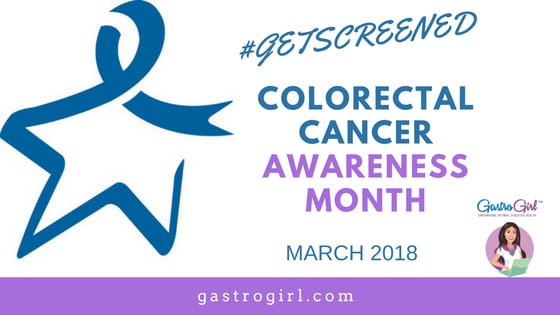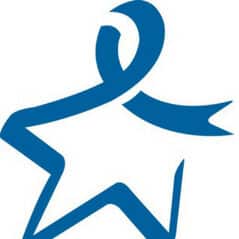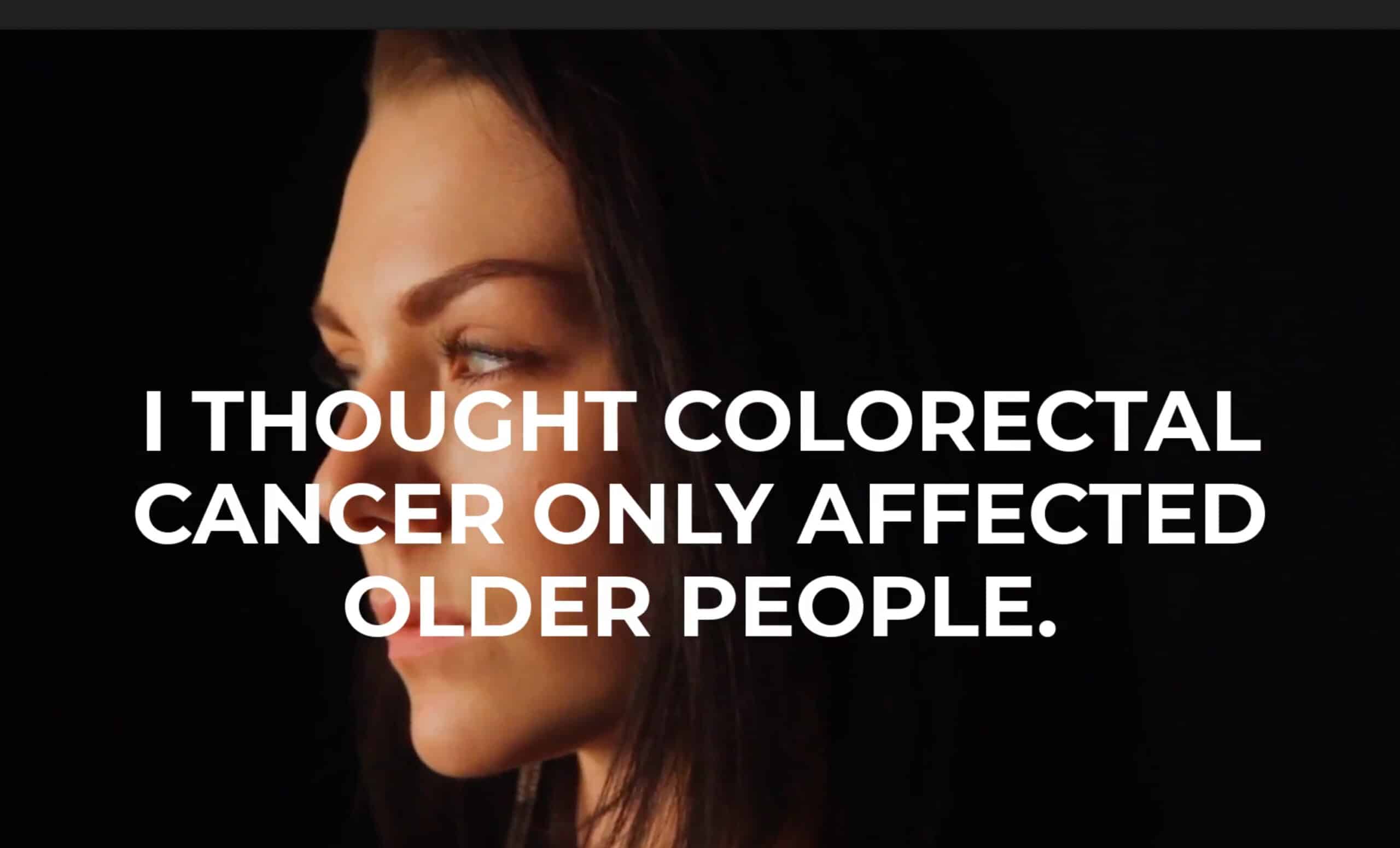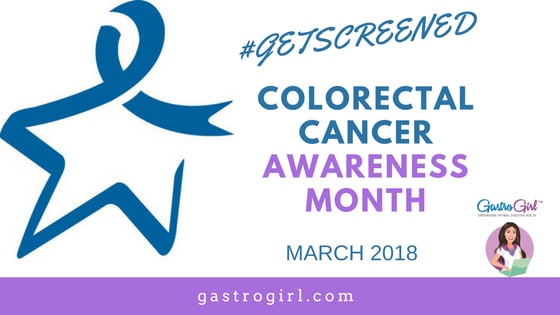March is Colorectal Cancer Awareness Month – What You Need to Know

Colorectal cancer is the number two cancer killer and the third most commonly diagnosed cancer in the United States But it’s also highly preventable and treatable. In support of March Colorectal Cancer Awareness Month, Gastro Girl is committed to providing you with vital information that could potentially save your life or the life of someone you love.
The colon (also known as the large intestine) is about five to six feet long, beginning at the cecum and ending with the anus.The last five to ten inches of the colon is called the rectum. Cancer located in the rectum is called rectal cancer, and cancer located in the rest of the colon is colon cancer. Colorectal cancer (CRC) is the term referring to both cancer types.
Risk factors for colorectal cancer include age (the majority of patients are 50 or older). But other risk factors include having been diagnosed with inflammatory bowel disease, such as Crohn’s or ulcerative colitis; a family history of colorectal cancer; or a genetic predisposition to colorectal cancer showing up as such syndromes as familial adenomatous polyposis or Lynch syndrome.
You’re also at greater risk if you eat a low-fiber, high-fat diet, are obese, use tobacco, drink alcohol, eat few fruits or vegetables, and have a sedentary lifestyle.
The cause of colorectal cancer in most cases is unclear. However, most colorectal cancers develop from polyps, which are abnormal growths in the colon. If polyps grow unnoticed and are not removed, they may become cancerous. Screening tests can find precancerous polyps so they can be removed before they turn into cancer. The development of more than 75-90 percent of colorectal cancer can be avoided through early detection and removal of pre-cancerous polyps.
Most early colorectal cancers produce no symptoms. This is why screening for colorectal cancer is so important. Symptoms of colorectal cancer vary depending on the location of the cancer within the colon or rectum, though there may be no symptoms at all. The prognosis tends to be worse in symptomatic as compared to asymptomatic individuals.
The most common presenting symptom of colorectal cancer is rectal bleeding. Cancers arising from the left side of the colon generally cause bleeding, or in their late stages may cause constipation, abdominal pain, and obstructive symptoms. On the other hand, right-sided colon lesions may produce vague abdominal aching, but are unlikely to present with obstruction or altered bowel habit. Other symptoms such as weakness, weight loss, or anemia resulting from chronic blood loss may accompany cancer of the right side of the colon. You should promptly see your doctor when you experience any of these symptoms.
Colonoscopy every 10 years is the preferred colorectal cancer prevention test. For normal-risk individuals, the American College of Gastroenterology recommends colonoscopy beginning at age 50, and age 45 for African Americans. If you have a family history of colorectal cancer— especially in a first-degree relative, such as a parent, sibling or child—your physician may recommend earlier or more frequent screening. In most cases, the recommendation is to begin screening 10 years prior to the relative’s age at diagnosis. Talk with your primary care provider about choosing a gastroenterologist who can perform the colonoscopy.
Remember to promptly see your doctor when you experience any of these symptoms:
- New onset of abdominal pain
- Blood in or on the stool
- A change in stool caliber or shape
- A change in typical bowel habits, constipation, diarrhea
ACG Resources
Patient Advocacy Groups
Listen to our
latest Podcast!







